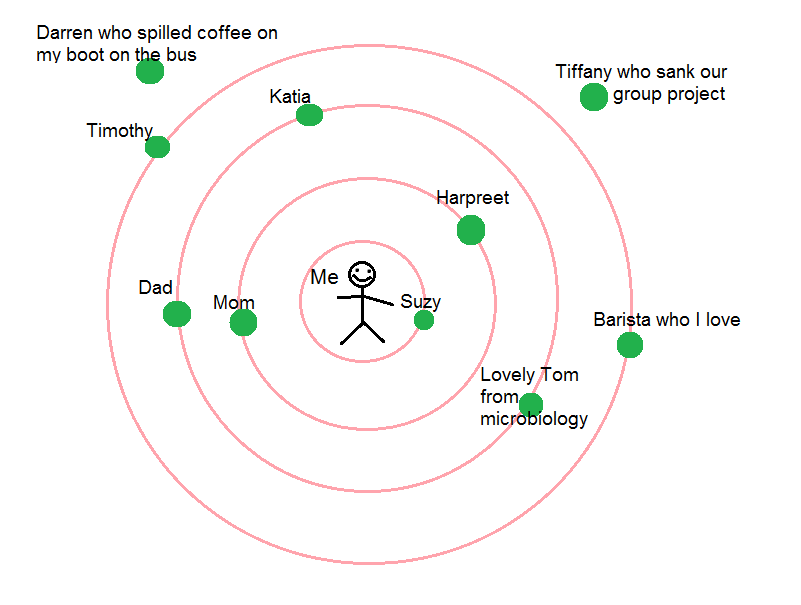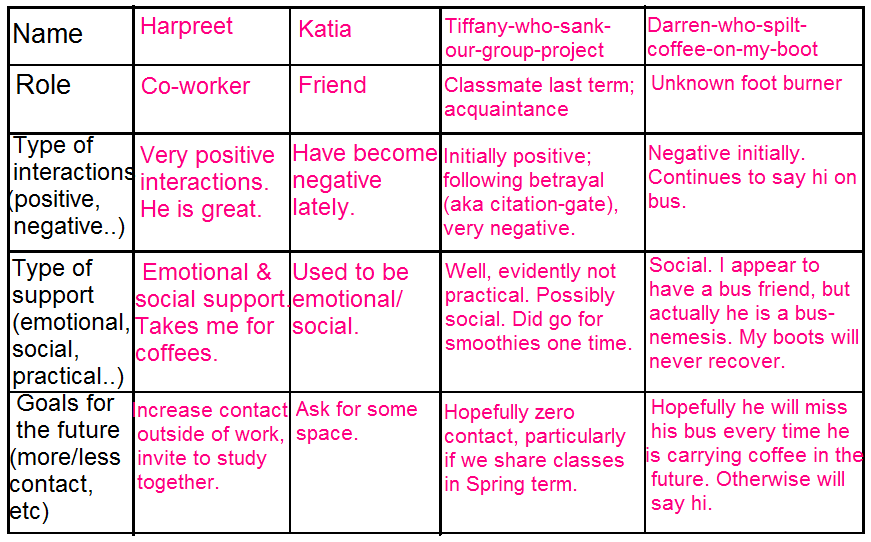Un-Friend people in 2018
 Now that we’re at 2018, it could be time to review all the relationships in your life and decide which ones are worth your energy, especially considering all the awkward you-totally-sank-our-group-project “friendships” that many of us may have established this past semester. Human beings are social creatures, and connection to others is a fundamental need.
Now that we’re at 2018, it could be time to review all the relationships in your life and decide which ones are worth your energy, especially considering all the awkward you-totally-sank-our-group-project “friendships” that many of us may have established this past semester. Human beings are social creatures, and connection to others is a fundamental need.
However, we often underestimate the importance of other people in our lives, and an emphasis on individualism and self-reliance (especially in Western culture) can kind of demean the value of the messages in songs like “Lean On Me” (a classic). The idea that a person can be entirely self-sufficient and healthy is totally false. Believe me; I am a person who spent two weeks sneaking into a shared kitchen to steal ice-cream bars in the dead of night, just to avoid my roommate. Who was a lovely person.
However, while important relationships can enrich our lives, they can of course also cause us pain and suffering. This can be a result of a conflict in the relationship, the loss of a relationship, or changes in roles within one’s social network.
 For example, if you no longer speak to your American aunt and uncle because they supported Roy Moore, really that might not be a huge loss, and you could be okay with not getting birthday cards from them any more. But if this is your first year away from your hometown, and you’re having trouble keeping in touch with your old friends, and they seem to be moving on without you, that change in your relationship could be really difficult to deal with.
For example, if you no longer speak to your American aunt and uncle because they supported Roy Moore, really that might not be a huge loss, and you could be okay with not getting birthday cards from them any more. But if this is your first year away from your hometown, and you’re having trouble keeping in touch with your old friends, and they seem to be moving on without you, that change in your relationship could be really difficult to deal with.
If you’re suffering from depression, being in a conflicted or painful relationship can slow recovery. In addition, complicated or unresolved grief can exacerbate and perpetuate depression. Emotions like guilt or shame can also affect our relationships, leading us to have difficulty confronting problems, apologizing, or asking for help. Furthermore, it can sometimes be really difficult to extract ourselves from relationships that can’t be salvaged, even if they’re damaging to ourselves and our happiness.
I figure we might as well try to increase our interpersonal relationships in 2018, to be as happy as we can be before a certain orange-tinted bigot presses the ‘go’ button on a nuclear warhead. To increase positive interpersonal experiences and decrease negative ones, the first thing that’s needed is awareness of what’s currently going on in your social network, in order to decide what you’d like to change, and what you’d like to see improve.
This is an exercise I learned when I was suffering with pretty serious depression, and there were some people in my life I needed to take a little time away from, because they made me feel bad about myself. It also helped me realize that I had friends I had drifted away from, and while I felt guilty for drifting away, I knew that reaching out to them might make me feel better, and help me reconnect to what I thought I’d lost.
I think that, particularly since we’re all so busy with classes and work and every-single-thing-ever, having a clear idea of who you want to make time for in your life could help ease the load of guilt over not responding to coffee invites from Tiffany-who-sank-our-group-project or Darren-who-spilled-coffee-on-my-boot-on-the-bus.
Here’s the exercise:
1. Take an inventory of people in your life (family, friends, co-workers, close acquaintances).
2. Identify goals:
- Improve conflictual or problematic relationships
- Cope with changing roles and transitions
- Increase the number and quality of interactions
- Gain acceptance of lost relationships
3. Identify the tasks:
- Improve communication
- Goal setting and planning for time together
- Grieving and acceptance if relevant
4. Fill out a circular chart (just scribble one like the example below — no judgement please, all I had was MS Paint) with yourself at the middle, and each circle representing how close your relationship is to another person. Identify if you want the level of closeness to change.
5. Make an inventory of the relationships on your chart, and make yourself a little chart like this example. Write down that person’s role (friend, partner, parent, etc), and include the effect this relationship has on your mood, what type of support this person provides you (emotional, social, etc). Finally, write down how you would like this relationship to change.
Of course, if you live your life entirely online, just click that un-friend, unsubscribe, etc, button until you feel the satisfying lifting of obligation from your shoulders, or simply the early signs of carpal tunnel syndrome.





